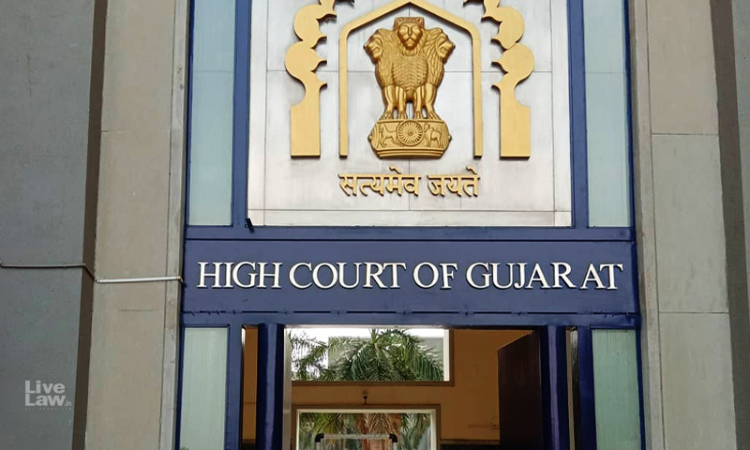- Home
- /
- High Courts
- /
- Gujarat High Court
- /
- 'Dying Declaration Doesn't Inspire...
'Dying Declaration Doesn't Inspire Confidence': Gujarat HC Upholds 1997 Order Acquitting Husband Booked For Setting His Wife Ablaze
Bhavya Singh
3 May 2025 2:15 PM IST
The Gujarat High Court upheld a 28-year-old trial court order acquitting a man accused of his wife's murder by setting her ablaze and thereby dismissed the State's appeal, after finding the prosecution's reliance on the victim's dying declarations unreliable.A division bench of Justice A.S. Supehia and Justice Nisha M. Thakore, in its order said, “looking to the medical condition of...
The Gujarat High Court upheld a 28-year-old trial court order acquitting a man accused of his wife's murder by setting her ablaze and thereby dismissed the State's appeal, after finding the prosecution's reliance on the victim's dying declarations unreliable.
A division bench of Justice A.S. Supehia and Justice Nisha M. Thakore, in its order said, “looking to the medical condition of the deceased, we are of the opinion that the history recorded by the doctors and the dying declarations, as mentioned hereinabove, become doubtful and the evidence emerging from the dying declarations and the oral testimony lacks sterling quality, which is not compelling enough to reverse the acquittal recorded by the trial Court.”
“The complaint, Exh.35 and the dying declaration at Exh.18, the history at Exh.13 and 42 (dying declarations) do not inspire confidence. The accused cannot be convicted by exclusively placing reliance on the history recorded by the doctors without specifying the time. The degree of burn injuries recorded by the doctors and the medical officer, who carried the postmortem, also do not reconcile with each other,” the Court added.
The above ruling came in an appeal moved by the appellant-State against a 1997 judgment of the Sessions Court which acquitted respondent-accused Kalubhai Amarshi Aghara for the offence punishable under IPC Sections 302(murder) and 498A (cruelty).
The case of the prosecution as per the complaint registered in 1995 by the deceased – Jashuben was that on 12.03.1995, after the deceased instigated her husband of sitting idle and not going to work, the accused got irritated, and assaulted her by giving kick and fists blows, and poured kerosene on her from a tin and bottle and set her ablaze.
After she was allegedly set ablaze by the accused, she ran out in the open space and on hearing her shouts, the neighbors also gathered and at that moment, her husband, the accused had thrown a quilt on her and tried to extinguish the fire, and at that moment her two sisters-in-law also arrived along with the other persons from the adjacent area, who saved her and thereafter, she was taken to the hospital by the accused, where her statement was recorded. The deceased succumbed to her burn injuries after about 15 days of hospitalization.
The prosecution relied primarily on two dying declarations: one recorded as a police complaint and another recorded by the Executive Magistrate. Additionally, it produced medical histories and testimony from 17 witnesses to support the case. The State argued that the dying declarations were clear and reliable and that the trial court had erred in discarding them.
The defence on the other hand contended that the deceased was mentally unstable, that her injuries made it improbable for her to make coherent statements, and that there were significant discrepancies between the medical evidence and the prosecution narrative. The defence further relied on the testimony of the deceased's own mother (defence witness) and a neighbor, both of whom contradicted the prosecution's version.
The High Court in its findings noted that the deceased had suffered serious burns on her lips, face, and neck, and had bandages applied on her face and she was unable to pronounce certain alphabet/consonants, and was speaking waveringly.
“She was also administered drugs. Thus, looking to the medical condition of the deceased, it is not palatable that she was able to give her statement with so clarity and lucidly. Hence, the contents of the complaint at Exh.35 are unpersuasive,” the Court stated.
The Court also found discrepancies between the Executive Magistrate's description of the injuries and those described by the doctors. It also found that the medical officer who certified the fitness of the deceased at the time of the Magistrate's recording had not been examined by the prosecution, which made the declaration unreliable.
The Court observed that the prosecution had not examined any independent witness or neighbours, who were present at the time of incident, except one witness which later turned hostile. The Court said, “The scene of offence does not refer to any struggle or resistance between the accused and the deceased. The case of the prosecution also becomes doubtful, as there is no investigation done about the injuries suffered by the accused, though both were admitted in the same ward of the hospital and the medical papers reveal that the accused had also suffered burn injuries on his both hands, while extinguishing the fire on the deceased.”
The Court pointed out, “On an overall appreciation of the evidence describing the medical conditions of the deceased, we are of the considered opinion that it was unbearable for the deceased to narrate the incident without any inconsistencies or discrepancies or in crisp and clear manner.”
Thus, the Court concluded that in the light of the unpersuasive evidence, it was not inclined to set aside the judgment passed by the trial Court recording the acquittal in favour of the respondent-accused.
Accordingly, while dismissing the petition, the Court reiterated, “It is trite in criminal jurisprudence that if two views are possible, the view, taken by the trial Court in acquitting the accused, has to be adopted.”
Case Title: State of Gujarat v. Kalubhai Amarshi Aghara
Citation: 2025 LiveLaw (Guj) 65



